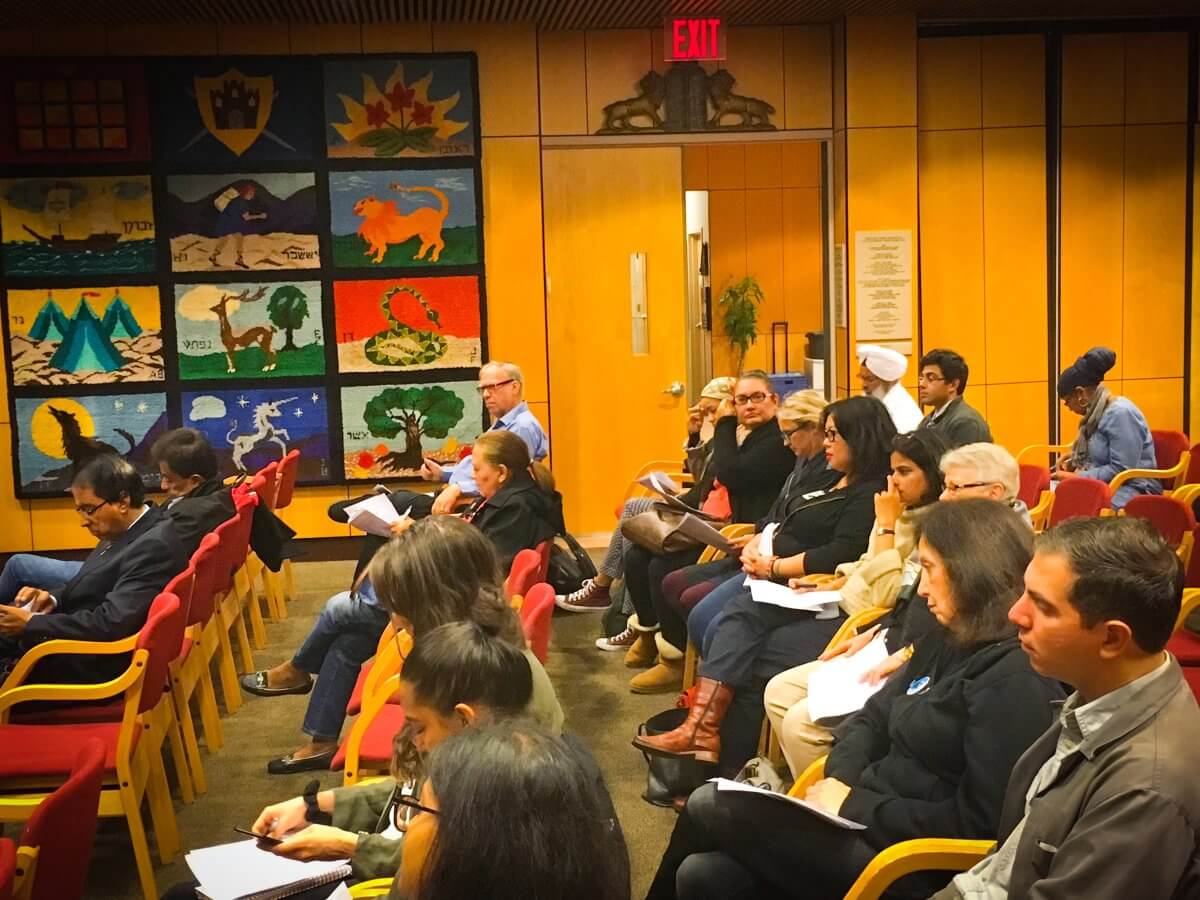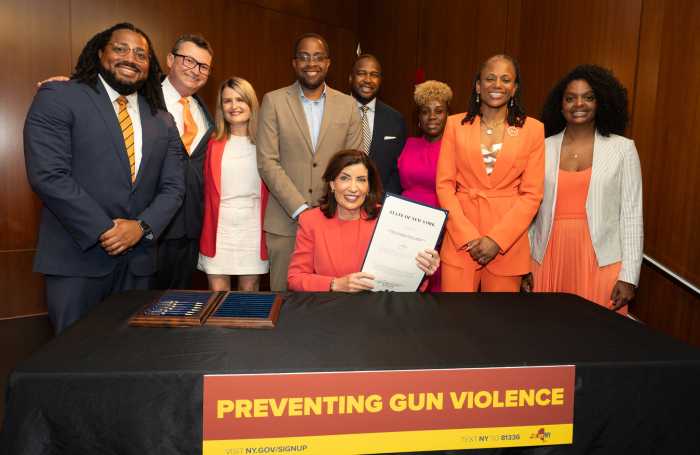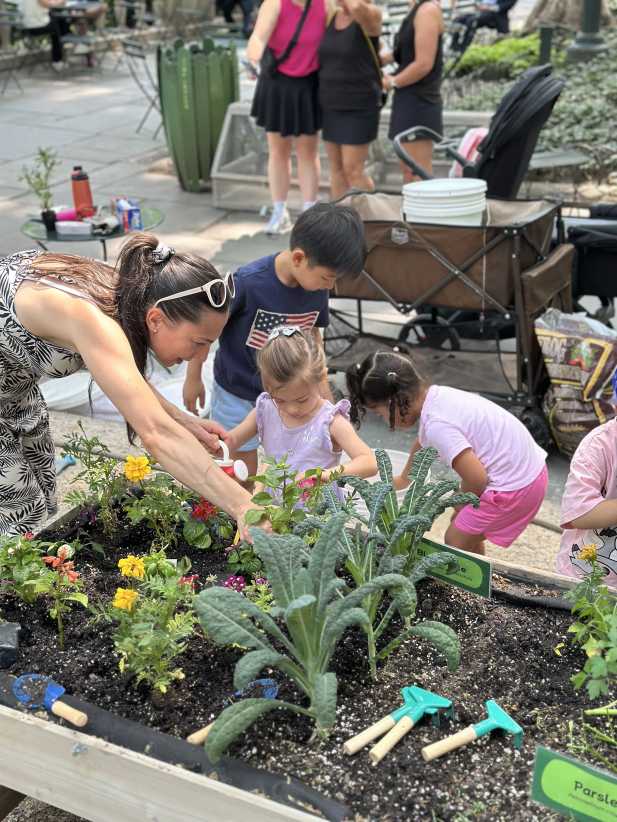The city is asking voters who go to the polls Nov. 6 on Election Day to flip the ballot and consider three proposals to amend New York City’s Charter in regards to campaign finance, civic engagement and community boards.
The three initiatives on the ballot were devised by the Charter Review Commission, which was appointed by Mayor Bill de Blasio to explore ways to improve democracy in the five boroughs.
Two Queens residents served as commissioners on the panel and last week they came to Jackson Heights Jewish Center — located at 37-06 77th St. — to host a public education forum and answer questions from dozens of participants about the three ballot questions.
Jackson Heights resident Annetta Seecharron, who currently serves as the executive director of Chhaya Community Development Corporation and Kyle Bragg, 32BJ SEIU’s secretary-treasurer and member on Community Board 13 in Queens Village, spent much of the evening discussing changes designed to help make community boards more reflective of the communities they represent by establishing term limits.
This proposal would limit the appointment of members to four consecutive two-year terms, creating more vacancies to increase civic participation, especially for younger people.
“To make sure there is equity representation both gender, ethnicity and age,” Bragg said. “Whether or not we hit the mark is up to the voters in November.”
After a two-year hiatus, former members could apply to be reappointed.
“Institutional knowledge of community board members with many years of service is important,” Bragg said. “It’s important to the community board and it’s important to pass it along to new members.”
A second ballot question would amend the city’s campaign finance system by making changes designed to address persistent perceptions of corruption associated with large campaign contributions. The proposal would also boost incentives for campaigns to reach out to small donors and create more opportunities for candidates to run diverse types of campaigns without the need to rely on large donors.
The proposal would lower contribution limits, increase public matching and make funds available earlier in the process.
“Hopefully it would incentivize those to campaign and get more candidates of color and ethnicity involved,” Seecharron said.
A third proposal proposes establishing a new Civic Engagement Commission to promote civic trust and strengthen democracy in New York City. Under the proposal, the Civic Engagement Commission would be responsible for implementing a citywide participatory budgeting program and partnering with community-based organizations, civic leaders and other city agencies to establish a program to provide language interpreters at all city poll sites.
“It’s an issue of building trust between local government and individuals and ultimately strengthen democracy,” Seecharron said. “New Yorkers can be disenfranchised at the polls because of language barriers. It’s important to remove any barrier that keeps them from voting. I don’t have to tell you why that is so important at this moment in time.”

































